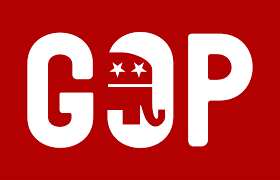Graduate Students Say GOP Tax Plan Could Increase Their Taxes by Nearly 300%

Graduate students say the Republican tax reform plan could raise their taxes by nearly 300%.
The tax plan would consolidate and eliminate several tax credits for higher education expenses. Many graduate students are given free tuition, as well as a stipend, in exchange for teaching classes or doing research for their professors. The proposed GOP tax plan — unveiled by House Republicans last week — would count those tuition waivers as taxable income.
Currently, graduate students only pay income tax on their stipends.
In documents circulated at Carnegie Mellon University and the University of California, Berkeley — and published by Wired — graduate students warned that such a policy would significantly increase what they owe in federal income taxes and dramatically slash how much of their stipend they take home.
“This provision would specifically target these students and increase their tax burdens,” Berkeley Ph.D. student Vetri Velan wrote in a memo circulating at the university. Velan estimated that the GOP plan would cause taxes to rise from $ 3,600 to $ 4,700 for a Berkley research assistant who receives an in-state tuition waiver and a $ 33,000 annual stipend.
The change would be dramatically higher for students at private universities or those receiving waivers for out-of-state tuition, according to the estimates made by Velan. An MIT research assistant, who receives a $ 37,000 annual stipend and has about $ 49,000 in tuition waived, would see an estimated 240% increase in federal income taxes, to $ 13,577.
At Carnegie Mellon’s college of science, a graduate student’s annual taxes could rise from $ 2,384 under current tax law to $ 9,459 under the proposed tax plan — an increase of 297%. After-tax income would fall from $ 27,000 to less than $ 20,000.
Critics have voiced concern that the policy will make higher education unaffordable for too many people and could deter people from pursuing careers in research or academia.
“This legislation, taken in its entirety, would discourage participation in postsecondary education, make college more expensive for those who do enroll, and undermine the financial stability of public and private, two-year and four-year colleges and universities,” the American Council on Education and several other advocacy groups wrote Monday in a letter to the House Ways and Means Committee. “This is not in America’s national interest.”



